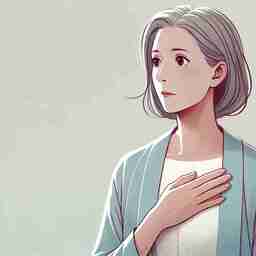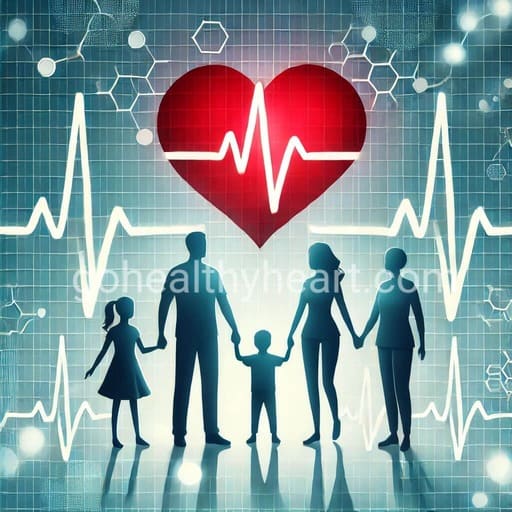Heart Attack Symptoms Women Should Never Ignore

Heart disease remains the leading cause of death for women globally, yet many don’t recognize the unique heart attack symptoms women can experience. Heart attack symptoms in women often differ from the classic symptoms we typically associate with men. Understanding these signs is essential, as early recognition could save lives. This guide breaks down these specific symptoms, so you’re better equipped to recognize them in yourself or others.
What Are Heart Attack Symptoms Women Should Know?
When we think of heart attack symptoms, chest pain often comes to mind. But for many women, symptoms can be more subtle and less obvious. Here are the signs you should look out for:
Unexplained Fatigue
Extreme and unusual fatigue can be an early sign. Women may feel overwhelmingly tired without any physical exertion. This fatigue often occurs weeks before a heart attack, so don’t ignore it if it seems out of the ordinary.
Shortness of Breath
Breathlessness without much activity is a common heart attack symptom for women. You might feel like you can’t catch your breath, even while resting. It’s essential to pay attention to this, especially if it’s unusual for you.
Back, Neck, or Jaw Pain
While chest pain is common in men, heart attack symptoms in women often show up as pain in areas like the back, neck, or jaw. This pain may come and go, feeling sharp or dull. Unlike muscle pain, this discomfort can feel deeper and more persistent.
Nausea or Lightheadedness
Women might feel nauseated or lightheaded before a heart attack, often confusing this with flu-like symptoms or food poisoning. This symptom can make it harder to identify a heart attack, as it’s easy to dismiss. But if nausea appears with other symptoms, don’t ignore it.
Sweating
Profuse, cold sweats, not linked to physical activity, are a less obvious heart attack symptom for women. Many dismiss this as a sign of menopause or anxiety, but it’s essential to be aware, especially if paired with other symptoms.
Chest Pain and Pressure
While women can experience chest pain similar to men, it’s often described as pressure, fullness, or squeezing, rather than sharp pain. It may feel like a weight on the chest and can spread to other areas, like the left arm or shoulder.
Why Heart Attack Symptoms Are Often Missed in Women
Heart attack symptoms in women are often subtler than in men, leading to misdiagnosis or underestimation of severity. Many women ignore these symptoms, attributing them to stress, aging, or less critical health issues. This lack of awareness can delay getting help. Studies show that women often wait longer to seek treatment than men, reducing their survival rates. Recognizing and addressing these signs promptly can make all the difference.
Recognizing Silent Heart Attack Symptoms in Women
A silent heart attack is one without obvious symptoms. It’s crucial to know that not all heart attacks present strong signs, like chest pain. Silent heart attacks are surprisingly common among women, with symptoms like:
Mild discomfort in the upper back or jaw
Unusual tiredness and sleep disturbances
Feeling anxious or “off” without clear reason
If these signs persist over days or weeks, they should be taken seriously. Women with silent heart attacks often experience small, hard-to-detect symptoms, making it essential to seek medical attention even if you’re unsure.
What To Do If You Notice Heart Attack Symptoms
If you notice any combination of these symptoms, it’s crucial to act quickly. Here’s what to do:
Don’t Hesitate to Call Emergency Services: Getting help within the first hour of symptom onset is vital for survival.
Chew an Aspirin if Available: Aspirin can help thin the blood, potentially reducing heart damage.
Stay Calm and Keep the Body as Restful as Possible: Avoid exerting yourself, as it could worsen symptoms.
Prevention Tips for Women’s Heart Health
While recognizing symptoms is important, preventing heart disease should be a priority. Here are some ways to keep your heart healthy:
Eat a Balanced Diet: Aim for a diet rich in fruits, vegetables, whole grains, and lean proteins to reduce cholesterol and blood pressure.
Exercise Regularly: Just 30 minutes of exercise daily can make a significant difference.
Don’t Smoke: Smoking dramatically increases the risk of heart disease, so consider quitting if you smoke.
Get Regular Checkups: Regular screenings for blood pressure, cholesterol, and blood sugar levels can catch potential issues early.
Conclusion
Heart attack symptoms women experience are often subtle and easy to miss, making it critical to understand them well. Unusual fatigue, breathlessness, and unexplained discomfort in areas like the neck or jaw should never be ignored. Awareness and early action can be lifesaving, so don’t hesitate to seek help if you notice these symptoms. Share this information to help others understand the unique heart attack symptoms women may face—it could make all the difference.




4 thoughts on “Heart Attack Symptoms Women Should Never Ignore”